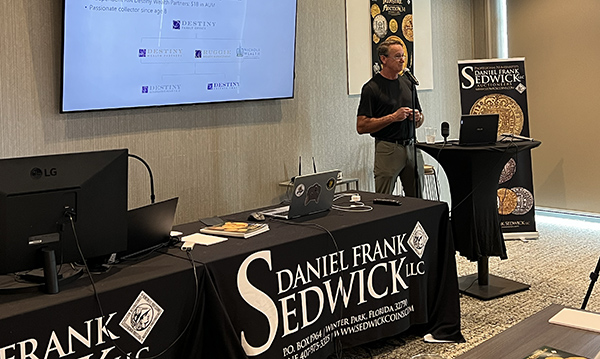Anyone with a passion for certain collectibles and the patience to wait for values to grow could see some strong returns.
BY THOMAS RUGGIE, CHFC®, CFP®
Dec 15, 2023
Your youthful passion may just help fund your retirement: Collectibles, sometimes misperceived as passion projects for slightly eccentric investors, have morphed into an increasingly solid asset class in their own right.
For those willing to invest the time — and more than a few dollars – in a category that appeals to them, collectibles are offering a new generation of investors an exciting place to put their money to work. And while watches, wines and baseball cards shouldn’t replace your IRA, those with the right mindset, time horizon and sufficient passion for the items being collected should find themselves with strong returns as well.
The values of sports memorabilia, vintage automobiles, luxury watches and even collectible handbags have all seen strong growth over the last several years, even as other markets have stuttered or fallen.
Spurred on by stuck-at-home Americans flush with idle cash, values in the collectibles market surged coming out of the pandemic, as some collectors rediscovered an old hobby, and others stumbled onto a new one.
Even as the market has slowed somewhat, the value of certain luxury collectibles have still seen a year-over-year growth of 7%, according to the Knight Frank Luxury Investment Index, while other more niche items — like collectible Lego sets — have seen increases of up to 11%, according to a study published in the Research in International Business and Finance journal.
Those gains are better than real estate and gold over the same time period.
But before using recent performance as a justification for buying yourself a $20,000 watch, here’s what some experts have to say about the collectibles market, where it’s going and what’s worth the price tag.
Nostalgia rules
Things that remind us of childhood are fetching remarkable prices at auction, whether its Rocky Balboa’s boxing gloves or the old muscle car you admired in the parking lot of your high school.
“Those high school students are now in their 50s and have the expendable income to buy the muscle car they had always wanted, and are not afraid to pay for it,” said Joe Sabatini, president of exotic car show organizer Festivals of Speed.
As a new generation becomes the power spenders, demand in the marketplace shifts. Certain cars from the ’80s are now able to fetch up to $200,000 — valuations that had been previously associated exclusively with cars from the ’60s.
Following the trend line of nostalgia, Sabatini has a guess for what class of vehicle will pop off next: vintage Japanese cars.
Keep liquidity in mind
One key to investing wisely in collectibles: liquidity. Unlike market-traded assets that can be turned into cash quickly, most categories of collectibles take significantly more time to transact. In addition, to maximize profit, sellers need to be able to authenticate and properly market their assets — both of which require preparation and advance notice.
“It’s important that potential investors don’t earmark more money than they should to an asset class like sports collectibles,” said Brian Dwyer, president of Robert Edward Auctions. “Certain pieces have an inherent illiquidity to them, and if they have to be sold in a rush, it can be disastrous for the investor.”
That means investments in collectibles should be understood as providing long-term returns. For items like art and car collectibles, things like ownership lineage and provenance can drive up values significantly. Generally speaking, the holding period for collectibles should be thought of in multiple years, not months.
Correlated to the economy — contraction ahead?
For investors new to the world of collectibles, one note of caution: Like most parts of the economy, the collectibles market isn’t immune to the impacts of rising interest rates. Most experts in the space expect some degree of pullback over the next year as soaring interest rates slow demand and auction houses cool from their post-pandemic booms.
According to collectibles research group Altan Insights, the quantity of six- and seven-figure auction sales fell between 30% and 36% year-over-year, respectively.
Of course, that doesn’t mean there won’t be continued demand for certain items. While last year’s record-breaking sale of a vintage 1952 Mickey Mantle baseball card may have been a high point for the market, a proven asset like a Mickey Mantle card will continue to pay off. In general, the market for vintage sports memorabilia has proven resilient: Six-figure sales for vintage sports memorabilia were up 14% year-over-year, even while overall six-figure sales were down 30%.
Where to begin
Because collectibles markets have been strong ahead of the recent economic stutter-steps, buyers need to exercise extra caution when wading in. Working through trusted sellers is important, especially when purchasing big-ticket items, but buyers should also be cognizant of various market forces at play.
Ron Varney of Fine Art Advisors, for instance, cautions buyers in the art market right now. “High valuations have opened the doors for more artwork to come into the market,” he said, “and a lot of that isn’t what we would consider ‘investment-grade.’”
Fundamentally, collectors finding success are those with a true interest — whether it be in art, sports, wine or any other focused area. Investors who have a passion for their collection are not only more incentivized to hold on to their goods, but they are also going to be less likely to get swept up in speculative hype.
The best downside protection of all may come from the psychic income a collector gets from owning something they love deeply. Said Festival of Speed’s Sabatini regarding a client who watched a Ferrari they purchased grow to a multimillion-dollar valuation: “I don’t think those owners purchased the car as an investment. It was just a pure love of what the car was.”
Collectibles aren’t an asset class suited to every investor, but those with a passion for a particular class of items and patient funds to invest can find the category offers strong returns in the form of both dollars and happiness.











